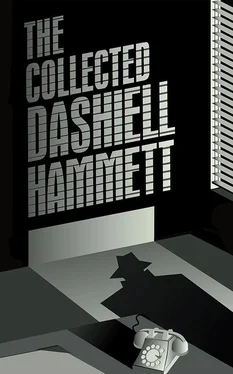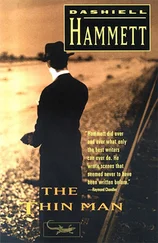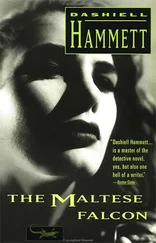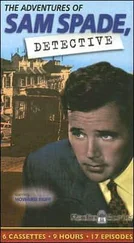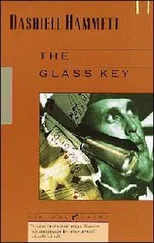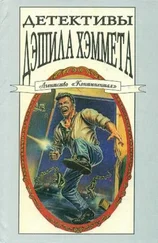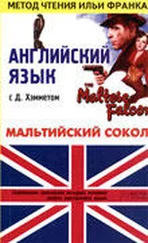These people, friends and neighbors, talked among themselves of “poor Margaret,” “poor little Mrs. Tharp,” whose husband was notoriously a ruffian, always off some distant where, up to any imaginable sort of scoundrelism. They pitied her, or pretended to pity her, these owners of docile pets, because her man was a ranging beast who could not be penned, because he did not wear the dull uniform of respectability, did not walk along smooth, safe ways. Poor little Mrs. Tharp! She put her cup to her mouth to check the giggle that threatened to break in rudely on Helen’s interpretation of a disputed bridge point.
“It really doesn’t matter, so long as everyone knows what rule is to be followed before the game starts,” she said into a pause that asked words of her, and went on with her secret thinking.
What, she wondered with smug assurance that it never could have happened to her, would it be like to have for husband a tame, housebroken male who came regularly to meals and bed, whose wildest flying could attain no giddier height than an occasional game of cards, a suburbanite’s holiday in San Francisco, or, at very most, a dreary adventure with some stray stenographer, manicurist, milliner?
Late on the sixth day that Margaret expected him, Guy came.
Preparing her evening meal in the kitchen, she heard the creaking halt of an automobile in front of the house. She ran to the door and peeped through the curtained glass. Guy stood on the sidewalk, his broad back to her, taking leather traveling bags out of the car that had brought him up from the ferry. She smoothed her hair with cold hands, smoothed her apron, and opened the door.
Guy turned from the machine, a bag in each hand, one under his arm. He grinned through a two-day stubble of florid beard and waved a bag as you would wave a handkerchief.
A torn cap was crooked on his tangled red hair, his chest bulged a corduroy jacket of dilapidated age, grimy khaki trousers were tight around knotted thighs and calves, once-white canvas shoes tried to enclose feet meant for larger shoes, and failed to the extent of a brown-stockinged big toe. A ruddy viking in beggar’s misfits. There would be other clothes in his bags. Rags were his homecoming affectation, a laborer-home-from-the-fields gesture. He strode up the walk, careless bags brushing geraniums and nasturtiums back.
Margaret’s throat had some swollen thing in it. Fog blurred everything but the charging red face. An unvoiced whimper shook her breast. She wanted to run to him as to a lover. She wanted to run from him as from a ravisher. She stood very still in her doorway, smiling demurely with dry, hot mouth.
His feet padded on steps, on porch. Bags fell away from him. Thick arms reached for her.
The odors of alcohol, sweat, brine, tobacco cut her nostrils. Bearded flesh scrubbed her cheek. She lost foothold, breath, was folded into him, crushed, bruised, bludgeoned by hard lips. Eyes clenched against the pain in them, she clung hard to him who alone was firmly planted in a whirling universe. Foul endearments, profane love names rumbled in her ear. Another sound was even nearer — a throaty cooing. She was laughing.
Guy was home.
The evening was old before Margaret remembered Leonidas Doucas.
She was sitting on her husband’s knees, leaning forward to look at the trinkets, Ceylonese spoils, heaped on the table before her. Cockleshell earrings half hid her ears, heavy gold incongruities above the starched primness of her housedress.
Guy — bathed, shaved, and all in fresh white — tugged beneath his shirt with his one free hand. A moneybelt came sluggishly away from his body, thudded on the table, and lay there thick and apathetic as an overfed snake. Guy’s freckled fingers worked at the belt’s pockets. Green banknotes slid out, coins rolled out to be bogged by the paper, green notes rustled out to bury the coins.
“Oh, Guy!” she gasped. “All that?”
He chuckled, jiggling her on his knees, and fluttered the green notes up from the table like a child playing with fallen leaves.
“All that. And every one of ’em cost a pint of somebody’s pink blood. Maybe they look cool and green to you, but I’m telling you every last one of ’em is as hot a red as the streets of Colombo, if you could only see it.”
She refused to shudder under the laugh in his red-veined eyes, laughed, and stretched a tentative finger to the nearest note.
“How much is there, Guy?”
“I don’t know. I took ’em moving,” he boasted. “No time for bookkeeping. It was bing, bang, get clear and step in again. We dyed the Yoda-ela red that one night. Mud under, darkness over, rain everywhere, with a brown devil for every raindrop. A pith helmet hunting for us with a flashlight that never found anything but a stiff-necked Buddha up on a rock before we put it out of business.”
The “stiff-necked Buddha” brought Doucas’s face to Margaret.
“Oh! There was a man here to see you last week. He’s waiting to see you at the hotel. His name is Doucas, a very stout man with—”
“The Greek!”
Guy Tharp put his wife off his knees. He put her off neither hastily nor roughly, but with that deliberate withdrawal of attention which is the toy’s lot when serious work is at hand.
“What else did he have to say?”
“That was all, except that he was a friend of yours. It was early in the morning, and I found him in the kitchen, and I know he had been upstairs. Who is he, Guy?”
“A fellow,” her husband said vaguely around the knuckle he bit. He seemed to attach no importance to, not even be interested by, the news that Doucas had come furtively into his house. “Seen him since then?”
“Not to talk to, but I see him every time I pass the hotel.”
Guy took the knuckle from between his teeth, rubbed his chin with a thumb, hunched his thick shoulders, let them fall lax, and reached for Margaret. Slumped comfortably in his chair, holding her tight to him with hard arms, he fell to laughing, teasing, boasting again, his voice a mellow, deep-bodied rumble under her head. But his eyes did not pale to their normal sapphire. Behind jest and chuckle an aloof thoughtfulness seemed to stand.
Asleep that night, he slept with the soundness of child or animal, but she knew he had been long going to sleep.
Just before daylight she crept out of bed and carried the money into another room to count it. Twelve thousand dollars were there.
In the morning Guy was merry, full of laughter and words that had no alien seriousness behind them. He had stories to tell of a brawl in a Madras street, or another in a gaming house in Saigon; of a Finn, met in the Queen’s Hotel in Kandy, who was having a giant raft towed to a spot in mid-Pacific where he thought he could live with least annoyance from the noise of the earth’s spinning.
Guy talked, laughed, and ate breakfast with the heartiness of one who does not ordinarily know when he will eat again. The meal done, he lit a black cigar and stood up. “Reckon I’ll trot down the hill for a visit with your friend Leonidas, and see what’s on his mind.”
When he mauled her to his chest to kiss her, she felt the bulk of a revolver holstered under his coat. She went to a front window to watch him go away from the house. He swaggered carelessly down the hill, shoulders swinging, whistling, “Bang Away, My Lulu.”
Back in the kitchen, Margaret made a great to-do with the breakfast dishes, setting about cleaning them as if it were a difficult task attempted for the first time. Water splashed on her apron, twice the soap slipped from her hand to the floor, a cup’s handle came away in her fingers. Then dishwashing became accustomed work, no longer an occupation to banish unwanted thoughts. The thoughts came, of Guy’s uneasiness last night, of his laughter that had lacked honesty.
Читать дальше
